I’ve known Dr. Pat Kopko for over 30 years. Today, you get to listen in on a solid DOZEN practical “Things We Wish We Knew” when we started!
NOTE: Continuing Education credit for this episode has expired. See below for details.
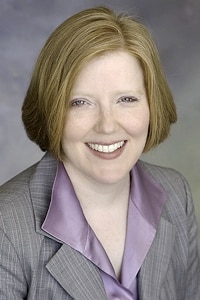
Dr. Pat Kopko
For this episode, Pat and I decided to have a conversation about the essential things we wish we would have known when we started on our respective paths to being blood bankers. We get really, really practical, and give you tons of useful information. We share tips and memory tools, and present facts in a memorable way. This episode is especially useful for all listeners who don’t do blood banking every day, such as residents, medical students, clinicians, non-blood bank pathologists, nurses, non-blood bank laboratory scientists, and anyone else who doesn’t live in our world all the time! So, pull up a chair, eavesdrop on two friends talking the “Essentials,” and enjoy!

Dr. Pat Kopko
For this episode, Pat and I decided to have a conversation about the essential things we wish we would have known when we started on our respective paths to being blood bankers. We get really, really practical, and give you tons of useful information. We share tips and memory tools, and present facts in a memorable way. This episode is especially useful for all listeners who don’t do blood banking every day, such as residents, medical students, clinicians, non-blood bank pathologists, nurses, non-blood bank laboratory scientists, and anyone else who doesn’t live in our world all the time! So, pull up a chair, eavesdrop on two friends talking the “Essentials,” and enjoy!
About My Guest:
Dr. Pat Kopko is a graduate of the Loma Linda University School of Medicine in Loma Linda, CA. She did a residency in anatomic and clinical pathology at Loma Linda, followed by a transfusion medicine fellowship at Cedars-Sinai Medical Center in Los Angeles. Dr. Kopko is a Professor of Pathology at the University of California, San Diego, where she serves as Director of Transfusion Medicine and Associate Director of the Immunogenetics and Transplantation Laboratory. Her research interests center around transfusion reactions, particularly Transfusion-Related Acute Lung Injury (TRALI), currently the leading cause of transfusion-related mortality in the United States. Dr. Kopko has published extensively on TRALI and other topics, including platelet refractoriness, transfusion in ABO-incompatible HPC transplantation, and blood transfusion practices.
Continuing Education Expired
This podcast episode offered continuing education credit for two years from its release date, but is no longer eligible for such credit.
To find Blood Bank Guy Essentials Podcast episodes with active continuing education opportunities, Click here or visit Transfusion News Continuing Education on Wiley Health Learning.
DISCLAIMER: The opinions expressed on this episode are those of my guest and I alone, and do not reflect those of the organizations with which either of us is affiliated. Neither Dr. Kopko nor I have any relevant financial disclosures.
Further Listening:
- Episode 002: Platelet Refractoriness with Pat Kopko
- Episode 035: Why Give Platelets? with Rick Kaufman
- Episode 023: RBC Transfusion Guidelines with Jeff Carson
- Episode 028: Who DAT? with Sue Johnson
- Episode 019: Cryoprecipitate with Joe Chaffin
- Episode 016: Plasma Transfusion with Jeannie Callum
- Episode 010: Daratumumab Effect with Rick Kaufman




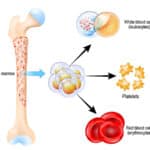

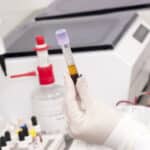



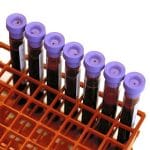

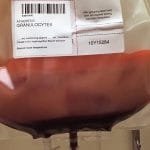
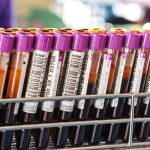
Re 2 sample policy, are there places that still do 2 types on same sample performed by diff tech? Your thoughts on this?
Pam, there are places that do so, as it is one of the suggested possibilities in the CAP checklist, last time I looked. Personal opinion: I’m not crazy about that strategy, as all it does is ensure the transfusion service is doing its job properly. It does nothing to try to detect a “wrong blood in the tube” mislabeled sample. That’s just me, though, and such decisions are up to the local medical director.
-Joe
Its national policy in the UK to do a second sample in order to issue red cells off the shelf without crossmatching. http://onlinelibrary.wiley.com/doi/10.1111/j.1365-3148.2012.01199.x/full
However there is still quite vigorous debate
Claire, thanks! I actually think that you have things more clearly spelled out in the UK than we have in the US. In the document you linked, there is pretty clear guidance in appendix 7 on what exactly to do as far as getting a second sample when urgent situations arise. While I think the same general principles are followed in the US, the guidance from regulatory agencies may not be as clear.
-Joe
Lets not foget that half humankind share the same ABO blood group and 85% of those of European descent are RhD positive. Even if there’s a wrong blood in tube, you have a good chance that you won’t detect it1.
Thence, typing twice the same sample in my opinion is useless. If you have a previous patient type, and you can compare both, there’s no need to do it.
If you don’t have a patient’s type then you should ask for another sample. In both cases, what is the use of testing twice the same sample? Even if a new red cell antibody arises, you will always have a doubt and will either a) ask for another sample to confirm b) trust your lab. Even if an existing antibody doesn’t appear you can attribute it to a fall in titres.
And don’t forget that sometimes there are samples (i.e. capilary from neonates, very low hematocrits etc.) cannot be typed twice.
Perhaps when we used homemade reagents, typed by hand this could have any role. Nowadays is more a bother than a real solution.
Interesting points, and I won’t argue that a second sample drawn separately by a second phlebotomist is in my opinion a better solution than re-testing the same sample twice (as already mentioned in a previous comment). Not sure, however, where you are going in your middle section about detecting new antibodies. The reason to do a second sample, in my view, is to confirm ABO and Rh (and sample integrity/identity) in a patient not previously typed at your facility, not to detect additional RBC antibodies.
-Joe
May thanks. Loving the Blood Bank Guy. I’m at FDA catching up on my CME. Why not do an episode on the relationship between practice, industry and the FDA?
Thanks, Dr. Pappas! I’m honored you would listen to my podcast (and happy that you are using it to collect some CME!). I am working on a regulatory-focused episode now, though it doesn’t have a lot of FDA stuff. It’s a great suggestion, and I’ll definitely keep it in mind moving forward.
-Joe